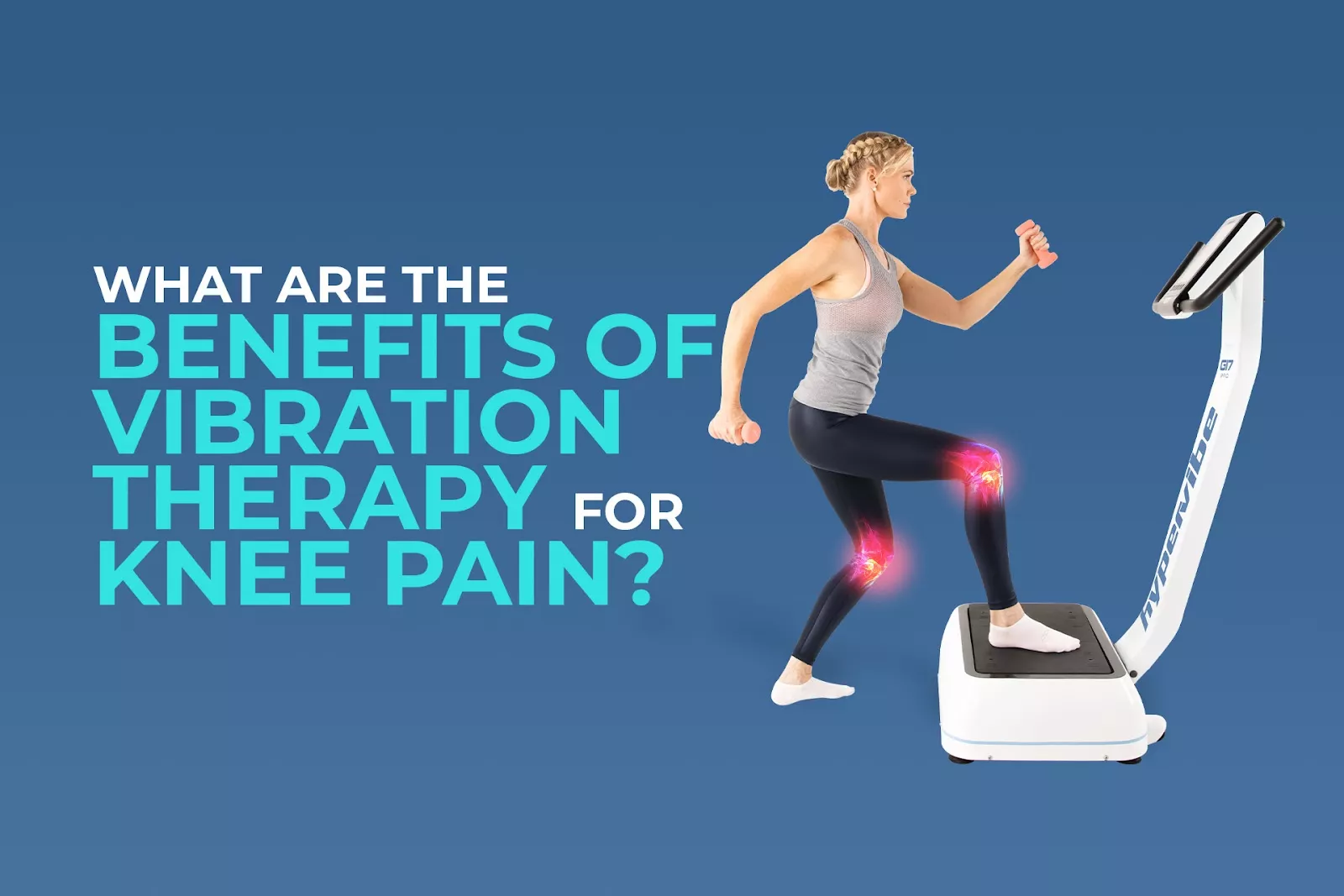
Is vibration plate good for knee pain? or, Can vibration plate help knee pain?
Yes.
Whole Body Vibration (WBV) reduces knee pain and builds function by doing what exercise alone often can’t when pain and inflammation inhibit muscle activation:
In practice, safe, well-structured WBV programs using 10–30 Hz for 5–10 minutes, three times weekly over 6–8 weeks have produced moderate improvements in knee osteoarthritis pain and quadriceps strength compared with exercise alone.
We use WBV to “switch on” inhibited support muscles so rehab can move forward when standard workouts stall.
Below, We break down how WBV targets pain, neural reflexes, inflammation, and balance, and summarize what recent studies show for osteoarthritis, sports rehab, and post-surgery recovery.
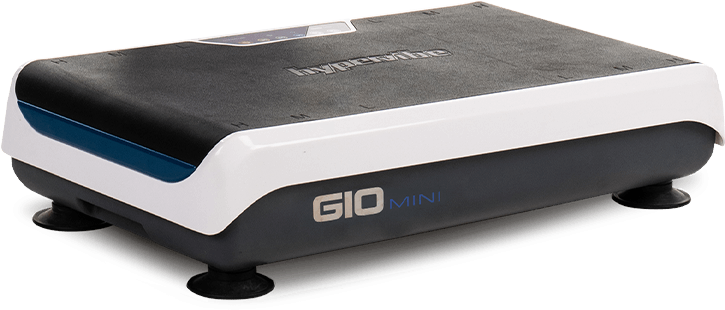




There are a lot of different reasons that people have knee pain.
Here, we’ll talk about two of the most common ones seen in a doctor’s office:
Osteoarthritis (OA) is first.
It typically begins when the cartilage that cushions the knee joint breaks down, narrowing the joint space and allowing for bone-on-bone contact, which causes severe pain.
This process also triggers recurrent, low-grade inflammation, causing movement to feel extremely hard and accompanied by soreness.
Even after knee surgery (e.g., debridement, knee replacement), some people continue to experience pain due to scar tissue, altered joint mechanics, and muscle inhibition (especially in the weak or poorly firing knee muscles like the quadriceps and hamstrings), not just the joint surface itself.
Patellofemoral pain (the “front of the knee”) is another common problem.
It’s often an overuse/over-compression or tracking problem.
In other words, for one reason or another, the undersurface of the kneecap rubs too much against the bone below.
This can occur from simple overuse (repetitive load) or, more commonly, as a result of muscle imbalance and hip/ankle control issues, and that produces pain with walking, stairs, squatting, or even prolonged sitting.
With these two conditions (and many others), Vibration Therapy can tap into powerful yet safe physiological effects such as:
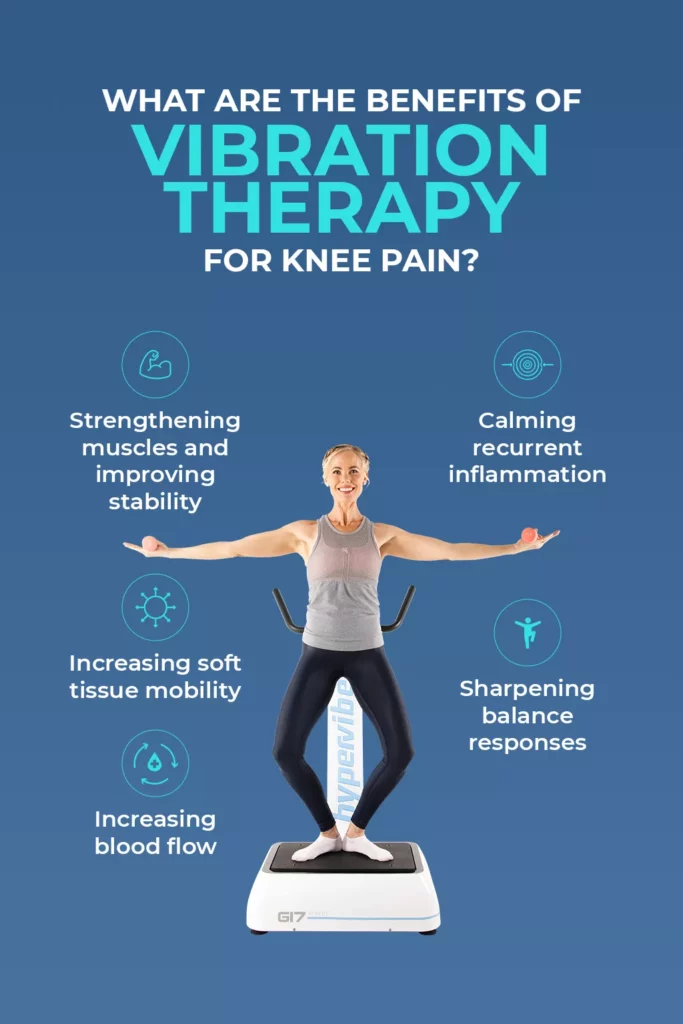
Woman on a hypervibe vibration machine with benefits of using a vibration machine for knee pain
Let’s break that down:
Whole Body Vibration works by placing a vertical force on your body.
In the best machines, this force alternates right and left.
Depending on the settings you’re using, this force simulates different levels of gravity (referred to as G-Force).
It’s a lot like using weights, but more functional and with less risk of injury.
Both low-frequency (10–30 Hz) and high-frequency (30–40 Hz) Whole Body Vibration were associated with significant changes in knee extensor strength.
In osteoarthritic knees, where muscle reflexes are blunted, vibration can be very helpful.
A 2024 meta-analysis of both animal and human WBV studies showed some striking anti-inflammatory effects:
A growing body of research (put link here with “research”) shows the benefits of proprioceptive training on the rehabilitation of complex knee conditions such as ACL reconstruction.
These gains include significant improvements in single-leg hop performance.
WBV provides a complementary pathway.
By stimulating neuromuscular reflexes and balance responses under controlled load, WBV may support similar rehabilitation goals with the added benefit of being low-impact and joint-friendly.
Over the last decade, several studies have investigated the role of WBV.
The results have consistently shown benefits for quadriceps activation, short-term strength, and pain reduction when vibration is added to rehabilitation.
Let’s break down these studies:
|
Study |
Cohort |
Vibration settings (device, frequency, amplitude) |
Key results |
|
Elderly KOA participants (n≈15–20) |
Vertical platform; frequency 35–40 Hz, amplitude 4 mm, acceleration ~2.78–3.26 g; squat protocol 3×/week for 12 weeks |
Significant improvement in quadriceps strength, functional measures (6MWT, gait), and WOMAC function; consistent with OA evidence favouring vibration + exercise over exercise alone |
|
|
KOA patients (n=19) undergoing 5-rep chair stands |
WBV peak-to-peak displacement 2.5–7.5 mm, frequency 5–14 Hz, acceleration 0.12–2.95 g, 2×/week for 5 weeks. |
Chair stand time decreased significantly post-WBV; muscle EMG was unchanged. |
|
|
Post-operative TKA patients (early postoperative day 2–3) |
Vertical WBV (BW-750): 8–10 Hz, 2 mm amplitude, 2×5-min sessions/day with 3-min rest each, standing with walker support. |
Immediate post-session gains in quadriceps strength and less calf swelling compared to the control group. |
|
|
Individuals post-ACL reconstruction (n=20) |
One acute session: vibration during isometric squats; frequency unspecified, but typical WBV protocols around 50 Hz, amplitude unspecified. |
Early rate of torque development (RTD) increased by +5.59 N·m·s·kg (95% CI: 1.47–12.72; p=0.007) post-WBV vs. control; supports neuromuscular activation benefit. |
|
|
ACL-reconstruction patients (13 RCTs, n≈407) |
The studies examined both full-body and localized vibration. When local vibration was set above 100 Hz, people saw greater quads and hamstrings strength improvements. |
VT significantly improved hamstring torque (WMD 12.67) and quadriceps torque (WMD 0.11); LMV >100 Hz subgroups had a larger effect (WMD 20.84). |
When it comes to knee pain, many people wonder if vibration plates are good for the knees, or can they exacerbate the pain?
The truth is, the answer depends on how you use them.
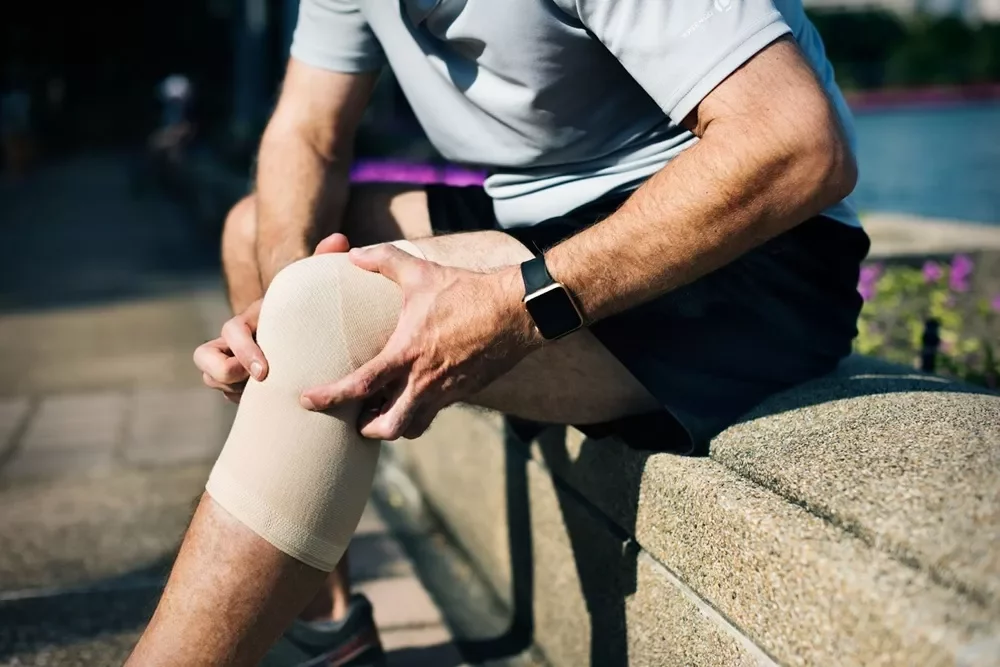
Man struggling with knee pain
Vibration therapy for knee pain is considered a low-impact and joint-friendly approach to managing knee pain.
Research shows that light exercises on a plate can quickly stimulate your muscles and nerves.
This then improves blood flow, reactivating the quadriceps and reducing stiffness in conditions such as knee osteoarthritis.
The result? Less pain, more effortless movement, and faster rehab progress compared to exercise alone.
Not all vibration settings are knee-friendly.
Suppose the plate is set to a high amplitude (over 4 mm) or runs at frequencies above 40 Hz, that extra mechanical load can irritate sensitive joints, especially if you already deal with OA or patellofemoral pain (pain at the front of the knee).
Now, this doesn’t mean vibration machines are unsafe for knee pain.
It simply means the right settings matter.
And that’s the same with all exercise.
Not really.
Here are the facts:
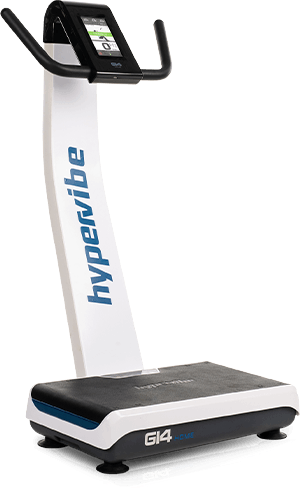




If you’re wondering how to use a vibration plate for knee pain safely, the answer is simple: Have structure.
This step-by-step routine helps your body adapt to the stimulation without overloading sensitive joints and is drawn from published trials on knee osteoarthritis and early rehab programs (use with low amplitude):
If you’re starting vibration therapy for knee pain, the goal is comfort and consistency, not pushing through pain.
If you experience a little muscle fatigue after using a vibration plate, that’s normal.
However, sharp or increased knee pain after using the plate usually comes down to two things:
The solution?
Lower the amplitude setting (bring feet closer together on a pivotal platform), unlock your knees with a soft bend, and shorten your sessions.
Yes, a vibration machine can be safe for most people, but there are situations where you should wait or get medical clearance.
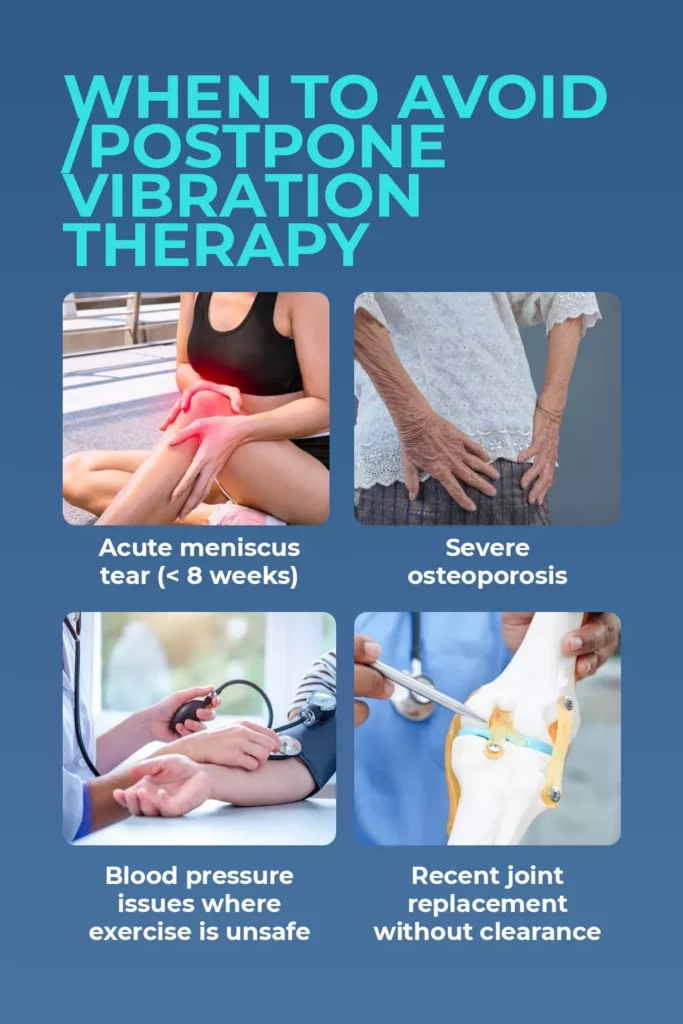
Infographic showing when to AvoidPostpone Vibration Therapy
Avoid or postpone use if you have:
Now, like any rehab tool, vibration therapy works best with recovery built in.
3-4 sessions weekly, never on back-to-back days, is all you need.
This gives muscles and joints time to adapt and prevents overuse.
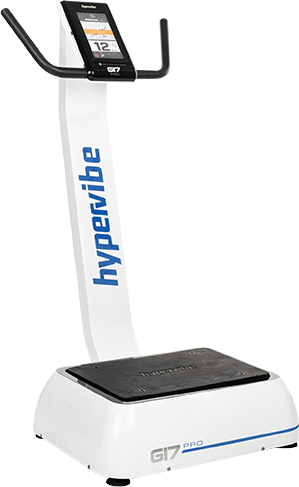




Yes, it does, especially when used consistently at low amplitude.
Clinical trials on people with knee osteoarthritis found vibration therapy improved pain, mobility, and quadriceps strength even after the training period ended.
When used correctly, vibration plates are not harmful.
The worry usually comes from poor techniques, like locking the knees straight or using very high forces.
If you feel knee pain after using a vibration plate, it’s a sign the settings or posture need adjusting.
With 3–4 weeks of regular sessions, you’ll experience less stiffness and more effortless movement.
For bigger strength and balance gains, you’ll see change around the 8–12 week mark.
Yes, you should because remember, vibration therapy is a complement for knee pain treatment, not a replacement.
Think of a WBV as a tool that makes physio more effective by reducing pain and helping the muscles “switch back on.”
If you’ve had ACL surgery or a knee replacement, your physiotherapist can guide you on how to use a vibration plate safely as part of your program.
Living with knee pain can feel like you’re stuck between two worlds: too active to accept immobility, but too sore to move freely.
Whether it’s osteoarthritis, post-surgery recovery, or just everyday stiffness, the right vibration plate can make rehab feel smoother and more effective.
And by the way, vibration plates aren’t bad for knees.
The evidence says the opposite: when used correctly, they’re one of the most joint-friendly tools out there.
Now, for a tiny recap:

Here’s how we use a vibration plate for weight loss...
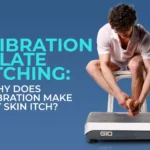
Many people, especially beginners, notice an itchy or tingling “pins-and-needles”...
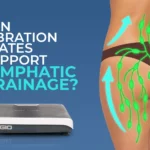
Yes, Vibration Plates or Whole Body Vibration (WBV) platforms, promote...
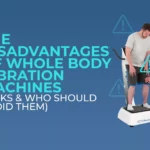
Are vibration machines bad for you? Yes, if used incorrectly....

The lymphatic system, also called the lymphoid system, is an...